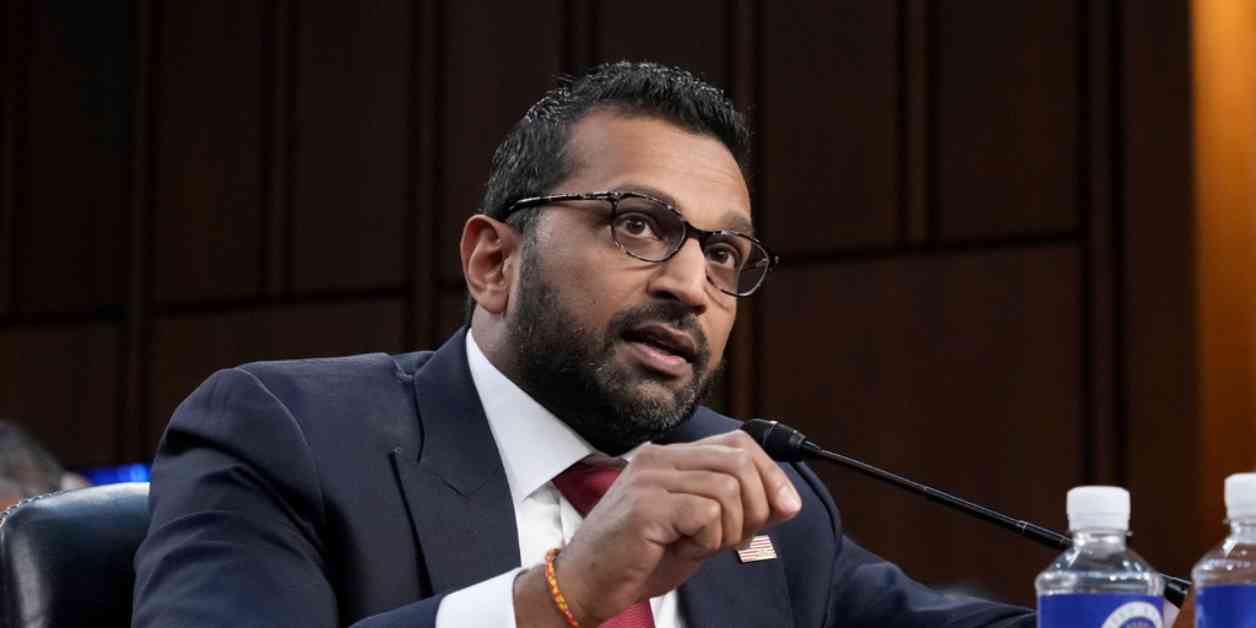Senator Alex Padilla, a Democrat representing California, recently raised concerns during the confirmation hearing of Kash Patel, President Donald Trump’s nominee for FBI director. The senator grilled Patel over his pro-gun stances, questioning his beliefs on the constitutionality of background checks for firearm purchases and civilian ownership of machine guns.
Padilla pressed Patel on whether he believed background checks on firearm purchases are constitutional, to which Patel responded that he was not familiar with the intricacies of the issue but believed it aligned with what the Supreme Court had ruled. The senator then shifted his focus to inquire whether civilian ownership of machine guns is protected by the Second Amendment, to which Patel reiterated that court rulings dictated what was protected under the Second Amendment.
The crux of Padilla’s line of questioning stemmed from an “association” between Patel and the Gun Owners of America group, which had enthusiastically endorsed Patel as Trump’s choice to lead the FBI. The organization had publicly applauded Patel’s nomination as being “fiercely pro-gun,” highlighting the alignment of his views with their stance on gun rights.
In response, Padilla expressed unease over the extreme positions taken by Gun Owners of America, particularly their belief that all background checks are unconstitutional and that civilian ownership of machine guns is protected under the Second Amendment. The senator underscored the critical role that the FBI director plays in overseeing firearm regulations, including the national instant criminal background check system and the prevention of machine guns falling into the wrong hands.
Padilla’s concerns centered around Patel’s hesitancy and responses during the hearing, questioning whether his views were in alignment with the responsibilities of the FBI director, especially in light of the organization’s endorsement. The senator emphasized the importance of upholding policies and programs that are in place for a reason, signaling his apprehension about Patel’s ability to effectively carry out the duties of the role.
As the confirmation hearing unfolded, tensions rose as Padilla continued to press Patel on his stance regarding critical gun regulations that would fall under his purview as FBI director. The senator’s line of questioning underscored the significance of aligning one’s beliefs with the responsibilities of a high-profile position, particularly in an area as sensitive and polarizing as gun rights.
Expert Analysis on the Impact of Patel’s Nomination
To gain a deeper understanding of the implications of Patel’s nomination and the concerns raised by Senator Padilla, we turned to expert analysis from constitutional law scholar Dr. Emily Johnson. Dr. Johnson emphasized the delicate balance between individual rights and public safety in the realm of gun regulations, highlighting the need for a nuanced approach to policymaking and enforcement.
According to Dr. Johnson, the role of the FBI director in overseeing firearm regulations requires a comprehensive understanding of constitutional principles, legal precedents, and the evolving landscape of gun rights advocacy. She noted that Patel’s responses during the confirmation hearing revealed a potential gap in knowledge or alignment with established norms in the field, raising valid concerns about his suitability for the position.
In light of Senator Padilla’s pointed questioning and the broader implications of Patel’s nomination, Dr. Johnson stressed the importance of appointing leaders who can navigate complex legal and ethical issues with clarity and conviction. She underscored the need for transparency, accountability, and a commitment to upholding the rule of law in shaping policies that impact public safety and individual liberties.
Reflections on the Intersection of Politics and Gun Rights
As the debate surrounding Kash Patel’s nomination for FBI director continues to unfold, it highlights the intersection of politics, ideology, and gun rights in shaping public discourse and policy decisions. The scrutiny faced by nominees like Patel underscores the depth of divisions and divergent viewpoints that exist within the realm of firearms regulation.
The clash between Senator Padilla and Patel serves as a microcosm of broader debates around the Second Amendment, constitutional interpretation, and the role of government in safeguarding public welfare. The tension between individual freedoms and collective security underscores the complexity of addressing gun violence, access, and accountability in a democratic society.
In navigating these contentious issues, it becomes imperative for leaders, policymakers, and citizens to engage in informed, respectful dialogue that seeks common ground while acknowledging divergent perspectives. The confirmation process for key positions like FBI director offers a critical opportunity to assess the alignment of nominees’ values, expertise, and commitments with the demands of public service and the greater good.
As the nation grapples with ongoing challenges related to gun violence, regulatory frameworks, and constitutional rights, the spotlight on figures like Kash Patel and the scrutiny they face underscore the enduring relevance of the Second Amendment and the imperative of upholding a balanced, informed approach to gun policy in a rapidly evolving society.

